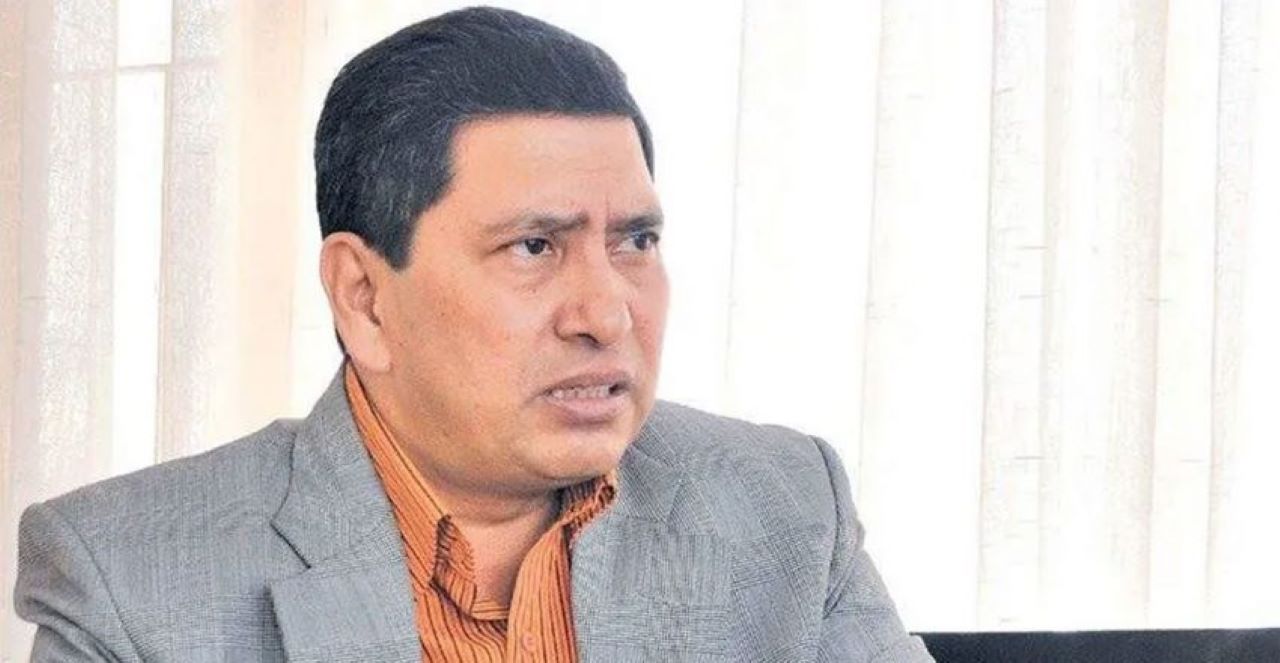
Kathmandu, May 15: Deputy Prime Minister and Minister for Foreign Affairs Narayan Kaji Shrestha said that Nepal and India being close neighbours have built an longstanding history of mutual friendship and cooperation.
The salient features of Nepal-India ties include geographical proximity; religious, cultural and linguistic relations; economic engagement and intensely flourished people-to-people relations, the minister noted.
In his closing remarks at the third series of lectures launched by the Ministry of Foreign Affairs in honour of former Ambassador and former Foreign Secretary Prof Yadunath Khanal on Tuesday evening, he said Nepal-India relations are nurtured by nature, bound by cultural affinity, comprehensive, multi-dimensional and incomparable.
“But there are some bilateral issues historically left behind that need to be resolved through dialogue and diplomatic channels based on historical facts and in accordance with the spirit of good neighbourlihood”, he said.
The third series was focused on Nepal-India relations featuring Prof C Rajmohan, former Director of the Academy of South Asian Studies, as the keynote speaker. This will pave the way for taking Nepal-India relations to a new height, for which the Government of Nepal is committed, DPm Shrestha said, reiterating that the bilateral relations are based on sovereign equality, peaceful coexistence, goodwill, mutual trust and understanding.
Minister Shrestha said the exchange of high-level visits has helped strengthen the relations and enhance partnership in many fields. Sharing that a consultative mechanism has been established to facilitate cooperation in various areas of bilateral relations, he said such mechanisms have facilitated to enhance mutual cooperation and partnership.
There is wider scope for cooperation in various areas of mutual benefits, he said that partnership in the energy sector is important. “Proper utilization of Nsepal’s immense potential of hydropower generation can transform the development landscape of our region into clean energy”, he said.
“Cross-border connectivity is being expanded to facilitate trade and transit. We need to further expand and improve this network”, Minister Shrestha said, adding both the countries should find ways to make mutual trade profitable.
Stating that the multinational companies operating in Nepal have withdrawn their money from their investments, he said Nepal has become an attractive destination for investment. There is a lot of scope for cooperation between Nepal and India in the field of information technology, the Foreign Minister stressed the need to expand bilateral cooperation in the field of education, science and technology.
Stating that Nepal’s development and economic prosperity would also serve the interests of its neighbours, he said a peaceful neighbourhood was Nepal’s desire. Prof Rajmohan said Nepal and India have similar global challenges and both the countries are facing them. Stating that small countries have been affected by the power struggle between the powerful nations, he stressed the need for the political leadership to find a solution to it carefully.
Noting that Kathmandu and New Delhi should learn from Beijing, he said China has improved relations with Russia and the USA as per the need. Although Beijing’s relations with Washington now are straining, relations with Moscow are strong, he said.
Foreign Secretary Sewa Lamsal informed that the lecture series has been organized to enhance thematic knowledge, discuss with the scholars about the existing foreign policy and practices of the country.
Khanal had served the nation as foreign secretary for two terms and ambassador to China, India and the United States. The Ministry of Foreign Affairs has started this lecture series in the honor of the country’s renowned diplomat Prof Khanal.
Comments